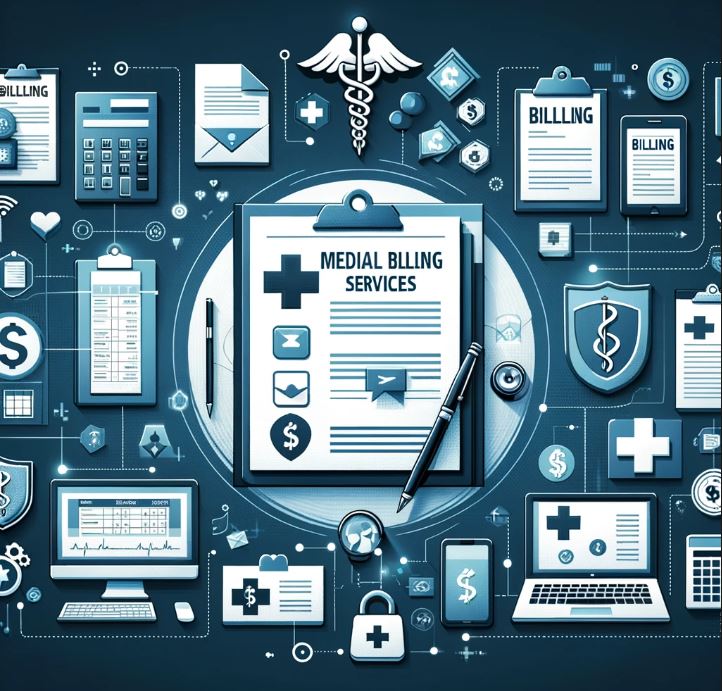
In the complex world of healthcare, managing finances efficiently is crucial for both healthcare providers and patients. Medical billing services play a pivotal role in ensuring that healthcare providers receive accurate and timely payments for the services they render. With the constant evolution of healthcare regulations and technologies, providers must stay updated on the latest trends and best practices in medical billing. In this comprehensive guide, we’ll delve into the intricacies of medical billing services, exploring everything from its fundamentals to advanced strategies for optimizing revenue cycle management.
Understanding Medical Billing Services
What is Medical Billing?
Medical billing is the process of submitting and following up on claims with health insurance companies in order to receive payment for services rendered by a healthcare provider.
The Role of Medical Billing Companies
Medical billing companies specialize in handling the billing process on behalf of healthcare providers. They ensure accurate coding, timely submission of claims, and efficient follow-up to maximize revenue.
The Importance of Efficient Medical Billing
Revenue Maximization
Effective medical billing practices lead to maximized revenue for healthcare providers by minimizing claim denials, reducing payment delays, and optimizing reimbursement rates.
Compliance and Regulation
Medical billing services ensure compliance with complex healthcare regulations such as HIPAA (Health Insurance Portability and Accountability Act) and ICD-10 (International Classification of Diseases, Tenth Revision), reducing the risk of audits and penalties.
Key Components of Medical Billing Services
Patient Registration
Accurate patient demographic and insurance information is collected during the registration process to ensure proper billing.
Coding
Medical coders translate healthcare services and procedures into universally recognized alphanumeric codes for billing purposes, such as CPT (Current Procedural Terminology) and ICD-10 codes.
Claim Submission
Claims are electronically submitted to insurance companies with all necessary documentation, ensuring prompt processing and reimbursement.
Payment Posting
Payments received from insurance companies and patients are posted to the appropriate accounts in the healthcare provider’s system for accurate financial reporting.
Denial Management
Medical billing companies handle claim denials by identifying and addressing root causes, resubmitting claims with corrections, and appealing denials when necessary.
Advanced Strategies for Optimizing Revenue Cycle Management
Utilization of Technology
Implementing advanced billing software and electronic health record (EHR) systems streamlines the billing process, reduces errors, and enhances efficiency.
Data Analytics
Analyzing billing data allows healthcare providers to identify trends, optimize pricing strategies, and make data-driven decisions to improve revenue cycle management.
Staff Training and Education
Continuous training and education for billing staff ensure compliance with changing regulations and industry best practices, reducing errors and improving efficiency.
Conclusion
In today’s rapidly evolving healthcare landscape, effective medical billing services are essential for healthcare providers to thrive financially while delivering high-quality patient care. By understanding the fundamentals of medical billing and implementing advanced strategies for revenue cycle management, providers can optimize their financial performance and navigate the complexities of the healthcare reimbursement process with confidence.
FAQs (Frequently Asked Questions)
1. What are some common reasons for claim denials in medical billing?
Claim denials can occur due to incomplete or inaccurate patient information, coding errors, lack of medical necessity documentation, and non-covered services.
2. How do medical billing companies ensure compliance with healthcare regulations?
Medical billing companies stay updated on the latest regulations through ongoing training and education for their staff, implementing robust compliance measures, and utilizing technology solutions designed to maintain regulatory compliance.
3. What are the benefits of outsourcing medical billing services?
Outsourcing medical billing allows healthcare providers to focus on patient care, reduces administrative burdens, improves revenue collection, and provides access to specialized expertise in billing and coding.
4. How can healthcare providers improve patient satisfaction through medical billing services?
Transparent communication about billing processes and costs, timely resolution of billing inquiries, and offering flexible payment options can enhance patient satisfaction and loyalty.
5. How do advancements in technology impact medical billing services?
Technological advancements such as artificial intelligence, automation, and predictive analytics are revolutionizing medical billing by improving accuracy, efficiency, and decision-making capabilities.




